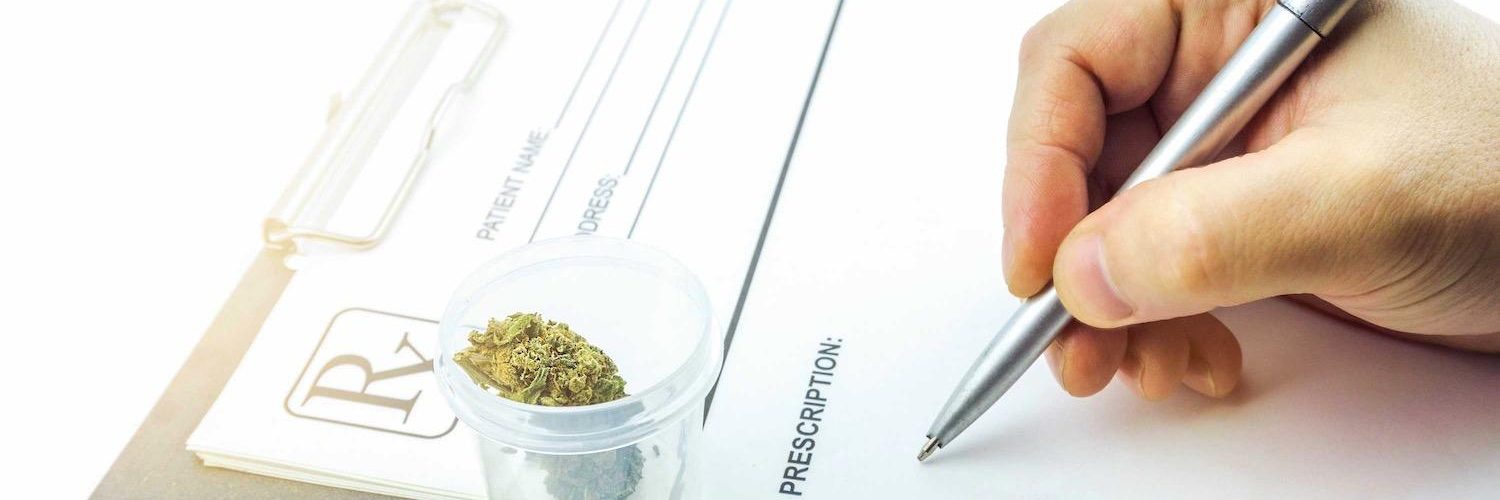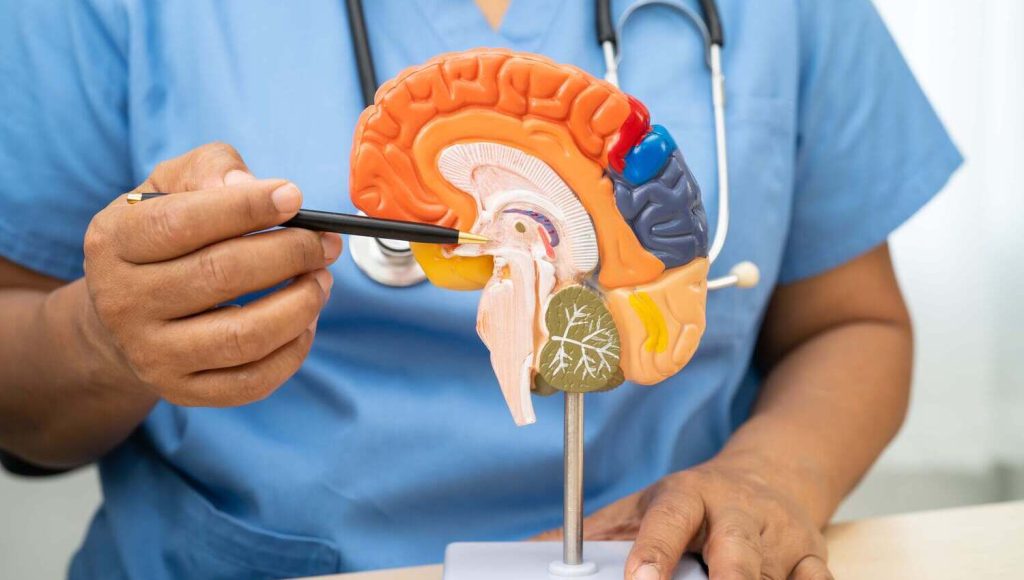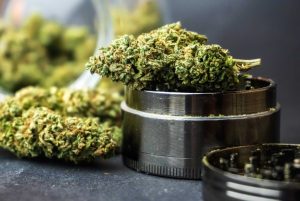Medical Marijuana For Huntington’s Disease
- Jake Peter
- Published: July 26, 2023
- Fact-checked by Dr. Desiree Granados

Huntington’s disease is a devastating and incurable neurological disorder that affects thousands of people around the world. Despite years of research, there is no known cure for Huntington’s disease. However, recent studies have shown that medical marijuana may be able to alleviate some of the symptoms associated with the condition. In this article, we will explore how medical marijuana can help those suffering from Huntington’s Disease.
What is Huntington’s Disease and What are the Symptoms?
Huntington’s disease (HD) is a hereditary degenerative brain disorder. It is caused by an inherited gene mutation that causes parts of the brain to become damaged over time, resulting in a wide range of mental and physical symptoms and complications.
The main symptom associated with HD is abnormal involuntary movements, known as chorea. In addition to this, people with HD may experience problems with cognitive and psychological functioning, including depression, anxiety, irritability, and apathy. Other symptoms associated with the disease include loss of muscle coordination, difficulty speaking or swallowing, gait disturbances, and an increase in muscular rigidity.
Causes of Huntington’s Disease
Huntington’s disease is caused by an inherited genetic mutation that results in an unstable, repetitive segment of DNA called a CAG repeating its expansion in the Huntingtin (HTT) gene. This mutation causes the HTT gene to produce an expanded version of the Huntingtin protein, which damages cells in areas of the brain that control movement, cognition and behavior.
Early diagnosis is essential to help manage the condition more effectively. Diagnosis typically involves a combination of genetic testing, imaging tests and physical examination. Treatment typically involves medications to manage symptoms, as well as supportive therapies such as occupational therapy.

Benefits of Medical Marijuana for Huntington’s Patients
Research has demonstrated that medical marijuana has the potential to mitigate the symptoms of Huntington’s disease in several ways. The drug’s primary benefit is that it can reduce inflammation, a major component of the disease. In addition, medical marijuana has been found to act as an analgesic, providing relief from chronic pain and enabling patients to move more freely.
Studies have also indicated that cannabinoids present in medical marijuana can help protect neurons and prevent further cell damage associated with Huntington’s disease. This can lead to improved cognitive functioning and motor control, allowing those affected by the condition to live more normal lives.
Other potential benefits of medical marijuana for Huntington’s disease include reduced anxiety levels and improved sleep quality. Many individuals with this condition often experience depression due to their physical limitations or difficulty communicating with others, and cannabis has been shown to effectively reduce feelings of depression and help patients cope with their condition.
Finally, medical marijuana has been found to be effective in minimizing involuntary movements that can affect some patients with Huntington’s disease. By decreasing the severity of these symptoms, individuals are able to lead more independent lives and engage in activities they may otherwise not be able to do.
Risks and Side Effects of Using Cannabis for Huntington’s
Cannabis has been used for centuries as a medicinal treatment for a variety of ailments, including Huntington’s disease. While the therapeutic benefits of cannabinoids have been documented in numerous studies, there are also potential risks and side effects associated with using cannabis for Huntington’s.
Common side effects of cannabis include dry mouth, increased appetite, paranoia, dizziness, anxiety, and fatigue. These side effects can usually be managed by reducing your dose or taking breaks between doses.
There are some more serious risks associated with using cannabis for Huntington’s disease. Patients should be aware that cannabis use could worsen motor symptoms such as chorea (involuntary movements) or dystonia (muscle spasms). Cannabis can also interact with other medications taken by patients suffering from Huntington’s disease, potentially leading to undesirable outcomes. Furthermore, individuals who use cannabis regularly may experience an increased risk of developing cognitive problems such as memory impairment and difficulty concentrating.
In addition to these risks and side effects, individuals who use cannabis for medical purposes may be at risk of developing an addiction to the substance. Those suffering from Huntington’s disease should exercise caution when consuming marijuana products and discuss potential risks associated with their use with their healthcare provider.
Conclusion
Medical marijuana has been gaining traction as an effective treatment for Huntington’s disease. If you or a loved one are suffering from Huntington’s disease and looking for alternative treatments, consider speaking with your doctor about medical marijuana. With careful monitoring and a physician’s guidance, medical cannabis may provide some relief from the painful physical and mental effects of HD while also improving patients’ quality of life.
States Where We Offer Medical Marijuana Card Services
How we reviewed this article:
- Medical Marijuana Effects in Movement Disorders, Focus on Huntington Disease; A Literature Review
https://pubmed.ncbi.nlm.nih.gov/33064979/ - Huntington’s disease
https://www.mayoclinic.org/diseases-conditions/huntingtons-disease/symptoms-causes/syc-20356117
Current Version
July 26, 2023
Written By
Jake Peter
Fact-checked By
Dr. Desiree Granados
Editorial Process
Our Editorial Process
Other Posts About Medical Marijuana Treatment

Jake Peter received his journalism degree from Emerson College and has been writing content for the Sanctuary Wellness Institute since 2021. He is passionate about all things cannabis.







